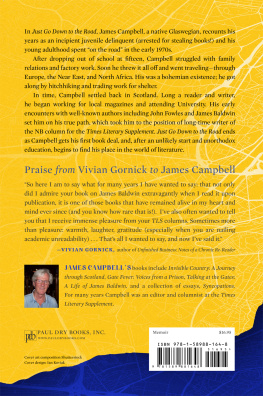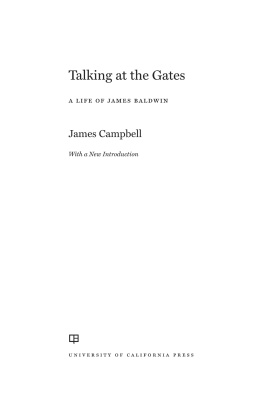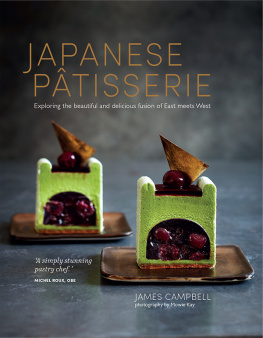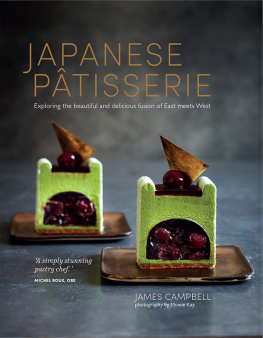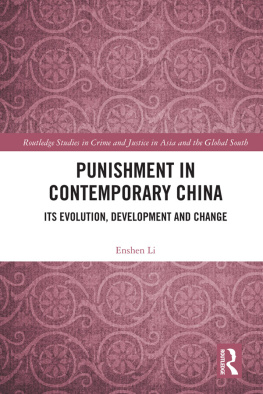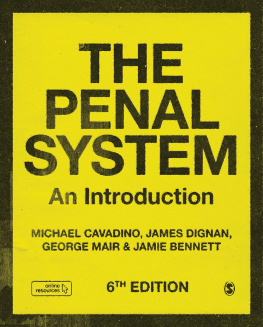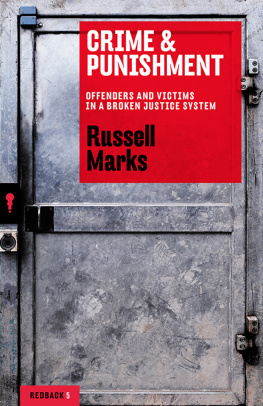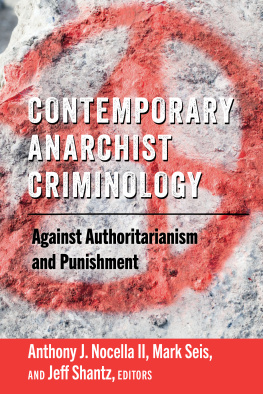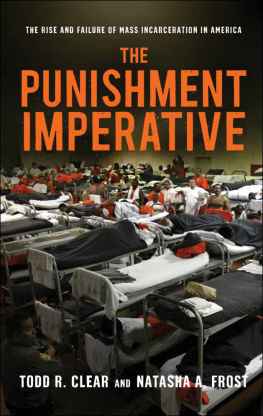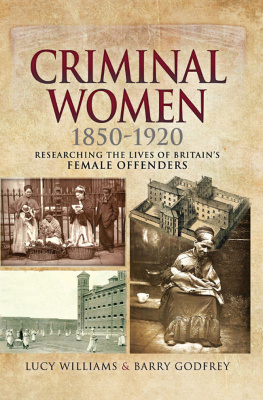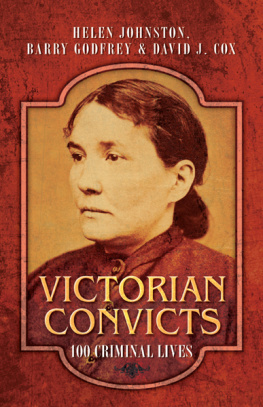Transnational Penal Cultures
Focusing on three key stages of the criminal justice process, discipline, punishment and desistance, and incorporating case studies from Asia, the Americas, Europe, Africa and Australia, the thirteen chapters in this collection are based on exciting new research that explores the evolution and adaptation of criminal justice and penal systems, largely from the early nineteenth century to the present. They range across the disciplinary boundaries of History, Criminology, Law and Penology.
Journeying into and unlocking different national and international penal archives, and drawing on diverse analytical approaches, the chapters forge new connections between historical and contemporary issues in crime, prisons, policing and penal cultures, and challenge traditional Western democratic historiographies of crime and punishment and categorisations of offenders, police and ex-offenders.
The individual chapters provide new perspectives on race, gender, class, urban space, surveillance, policing, prisonisation and defiance, and will be essential reading for academics and students engaged in the study of criminal justice, law, police, transportation, slavery, offenders and desistance from crime.
Vivien Miller is Associate Professor of American and Canadian Studies at the University of Nottingham. She is the author of Hard Labor and Hard Time: Floridas Sunshine Prison and Chain Gangs (2012) and Crime, Violence and Sexual Clemency: Floridas Pardon Board and Penal System in the Progressive Era (2000), and co-editor of Cross-Cultural Connections in Crime Fictions (2012). She is currently working on capital punishment in the pre-1972 United States.
James Campbell is Lecturer in American History at the University of Leicester. He is the author of Slavery on Trial: Race, Class and Criminal Justice in Antebellum Richmond, Virginia (2007) and Crime and Punishment in African American History (2012). He is currently working on a study of the death penalty in twentieth-century Jamaica.
Routledge SOLON Explorations in Crime and Criminal Justice Histories
Edited by Kim Stevenson, University of Plymouth, Judith Rowbotham, Nottingham Trent University and David Nash, Oxford Brookes University
This series is a collaboration between Routledge and the SOLON consortium (promoting studies in law, crime and history), to present cutting edge interdisciplinary research in crime and criminal justice history, through monographs and thematic collected editions which reflect on key issues and dilemmas in criminology and socio-legal studies by locating them within a historical dimension. The emphasis here is on inspiring use of historical and historiographical methodological approaches to the contextualising and understanding of current priorities and problems. This series aims to highlight the best, most innovative interdisciplinary work from both new and established scholars in the field, through focusing on the enduring historical resonances to current core criminological and socio-legal issues.
1. Shame, Blame and Culpability
Crime and violence in the modern state
Edited by Judith Rowbotham, Marianna Muravyeva and David Nash
2. Policing Twentieth Century Ireland
A history of An Garda Sochna
Vicky Conway
3. Capital Punishment in Twentieth-Century Britain
Audience, justice, memory
Lizzie Seal
4. The Origins of Modern Financial Crime
Historical foundations and current problems in Britain
Sarah Wilson
5. Transnational Penal Cultures
New perspectives on discipline, punishment and desistance
Edited by Vivien Miller and James Campbell
General series introduction
The volumes in this series contribute to the unashamedly interdisciplinary exercise in which SOLON has engaged since its inception in 2000: something now enhanced by the collaboration with Routledge to present cutting edge interdisciplinary research in crime and criminal justice history. The focus is on issues which, while rooted in the past, have also a crucial current resonance and so the volumes reflect on key issues and dilemmas which persist in terms of contemporary priorities.
This is the second edited collection in the series which, amongst other things, demonstrates the maturity of comparative transnational studies, and the importance of historically contextualised approaches to criminological issues. In light of current concerns with high prison populations, this collection presents a diverse range of histories of penal cultures and international penal perspectives across all five continents, which are harmonised and advance, significantly, a lexicon of transnational penology. It also advances consideration of the problems of crime and punishment in comparative, interdisciplinary and global terms. Edited by Vivien Miller and James Campbell, who are both well respected experts in the field, the volume is part of a UK Arts and Humanities Research Council funded project, Translating Penal Cultures. We are therefore delighted and honoured to include it in the series, believing that it represents truly cutting edge, research-inspired analysis and challenging conclusions. The three key themes, discipline, punishment and desistance, offer new perspectives on race, gender, class, urban space, prisonisation and defiance, and advance understandings of how state power was and is used, shaped and challenged. We are sure that readers will agree that this text will stimulate the interdisciplinary study of criminal justice and its historical contexts in fresh directions.
Kim Stevenson, Judith Rowbotham and David Nash
This is a stimulating and timely collection which brings together wideranging contributions on historical penal cultures. What makes it particularly distinct is its interdisciplinarity; with contributors drawing on the social ciences, demography, post-colonialism and transnationalism to complement the historical evidence. The circulation of ideas about crime, criminal justice theory, and the practices and transfer of domestic and colonial regimes are key themes. I have no doubt that this collection is a major addition to the field of comparative history and to criminal justice history too.
Heather Shore, Reader in History, Leeds Metropolitan University, UK
Over the past three centuries, the prison has emerged as one of the most enduring and pervasive institutions of European imperial expansion. Transnational Penal Cultures describes how the global experience of imprisonment has connected different cultures, but challenges any complacent view that this experience has been uniform. The cases gathered here, based on new research and drawing upon a fascinating range of archival sources, take us from the penal colonies of Austria and Russia, to the faith-based prisons of Brazil.
Along the way, the penal reform theories of Foucault and Elias are found wanting. And while the prison is everywhere seen as a potent symbol of state authority and power, it is not reform but the practice of state violence that marks the penal cultures described in this volume. This book stands as an invigorating and significant contribution to the literature of histories of punishment.
David M. Anderson, Professor of African History, University of Warwick, UK


